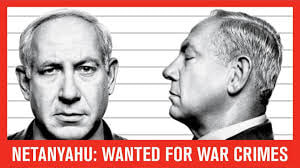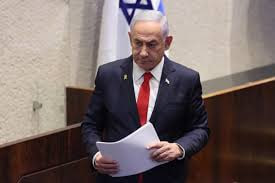
Netanyahu War Crimes: ICC Issues Arrest Warrant
The International Criminal Court (ICC) has issued an arrest warrant for Israeli Prime Minister Benjamin Netanyahu over alleged war crimes committed during the military conflict with Gaza and Lebanon. This decision, announced on November 23, 2024, also targets former Defense Minister Yoav Gallant. Both leaders face accusations of crimes against humanity, including disproportionate military force and the blockade of humanitarian aid. Read more here.
War Crimes Allegations Against Netanyahu and Gallant
The ICC accuses Netanyahu and Gallant of overseeing attacks on civilian infrastructure and other breaches of international law during the October 2023 to May 2024 conflict. These military actions have resulted in significant civilian casualties and widespread destruction across Gaza and Lebanon, with international bodies claiming violations of the Geneva Conventions and customary international law.
For more on the ongoing investigations, visit BBC.

International Reactions to the Arrest Warrant for Netanyahu
The decision to issue an arrest warrant has drawn mixed responses worldwide. Supporters of the ICC view the move as a vital step toward accountability for war crimes. However, Israel’s allies, particularly the United States, have expressed concerns, challenging the ICC’s jurisdiction, given Israel’s non-participation in the Rome Statute that governs the court’s operations. Learn more from Reuters.
Netanyahu’s Legal Defense Against War Crimes Charges
In response to the charges, Netanyahu has rejected the allegations as politically motivated and in violation of Israel’s sovereignty. His legal team is preparing to contest the court’s jurisdiction, emphasizing Israel’s stance as a non-signatory of the Rome Statute. Netanyahu’s defense will likely frame these actions as necessary for national security. For details on Netanyahu’s defense, read more on The Guardian.
Diplomatic and Political Consequences of the ICC’s Intervention
The ICC’s involvement in this case raises significant diplomatic concerns, particularly in the Middle East, where tensions remain high. The move could further complicate relations between Israel and its global allies while putting international law enforcement and accountability at the forefront of global discourse. More on the diplomatic fallout can be found on The New York Times.
The Path Forward for the ICC’s War Crimes Investigation
As the ICC’s investigation progresses, all eyes are on whether they will succeed in enforcing the arrest warrant. The international community will closely monitor whether the case establishes a legal precedent for future accountability or is influenced by political pressures that may hinder justice. Stay updated with further developments from Al Jazeera.